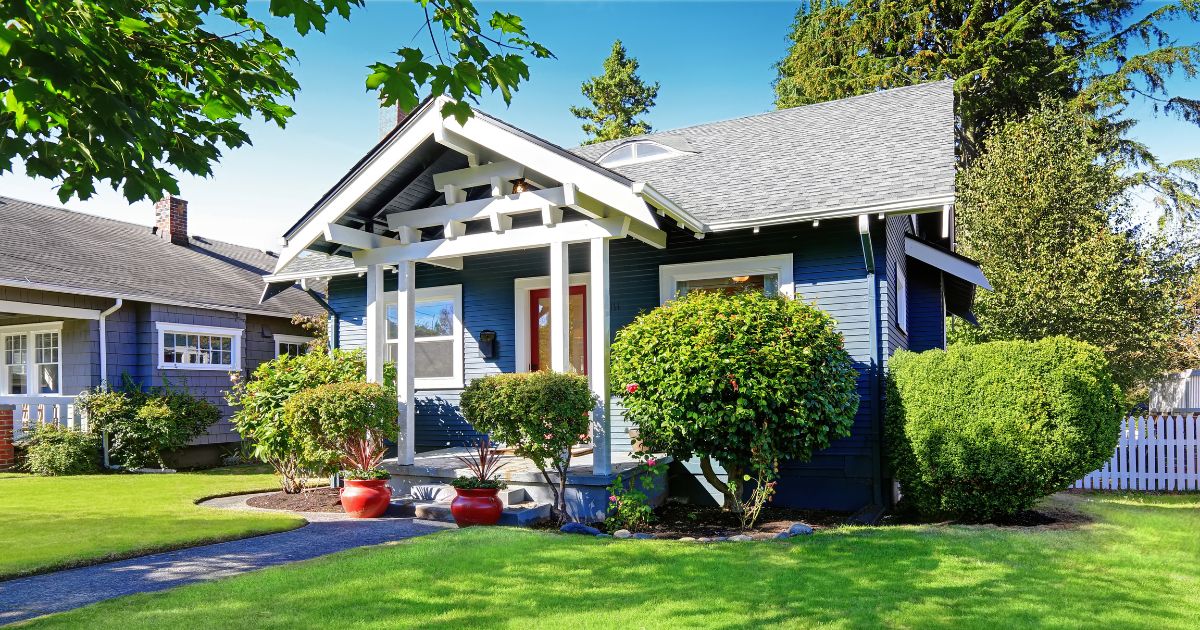Fixed-Rate Mortgages vs. Adjustable-Rate Mortgages

Much like traditional soft serve ice cream, home mortgages come in two different flavors: fixed and adjustable.
With a fixed-rate mortgage, you can expect your rate to stay the same for the lifetime of the loan. But with an adjustable-rate mortgage (ARM for short), your rate depends on market forces. It could swing up or it could swing down.
Which flavor is the best? Well, that’s like choosing between chocolate and vanilla – it just depends on personal taste. For the scoop on each financing option, keep reading. We’ve also included a list of questions to ask yourself before taking the plunge.
Contents
- What’s a Fixed-Rate Mortgage?
- Pros of a Fixed-Rate Mortgage
- Cons of a Fixed-Rate Mortgage
- What’s an Adjustable-Rate Mortgage?
- Pros of an Adjustable-Rate Mortgage
- Cons of an Adjustable-Rate Mortgage
- Which Loan Is Right for You?
What’s a Fixed-Rate Mortgage
With these home loans, you can expect to keep the same APR for the next 15 to 30 years, depending on your loan term.
Fixed-rate mortgages are perfect for home buyers who crave predictability. Rather than be at the whim of market conditions, you can expect to pay the same amount each month.
The downside? Much like an embarrassing tattoo, this home financing tool can lock you into a less-than-savory interest rate.
Types of Fixed-Rate Mortgages
Fixed-rate mortgages are typically defined by their loan terms. Though lenders can personalize the length of your loan, most fixed-rate mortgages are either 15-year or 30-year.
30-Year Fixed
This financing option affords homeowners the flexibility of repaying their debts over a 30-year period. Since the payments are spread out (amortized) over a longer period, you can expect lower monthly payments but a higher interest rate.
15-Year Fixed
A 15-year fixed mortgage cuts the repayment period in half, thereby doubling a homeowner’s monthly payments. Since a shorter loan term affords lower interest rates, it’s a solid choice for certain home buyers.
Pros of a Fixed-Rate Mortgage
- Your monthly mortgage payments will be consistent (with the exception of property taxes), which means that you can budget for other expenses or investment opportunities
- You’re protected from future interest rate increases, particularly when market forces drive rates up
- There are no prepayment penalties, or fees that crop up if you pay off your mortgage early
Cons of a Fixed-Rate Mortgage
- You can expect a higher interest rate compared to the “teaser” rates offered by ARM lenders
- Fixed-rate mortgages are harder to qualify for, especially if you have less-than-perfect credit
- If and when interest rates reach rock-bottom lows, you will still be stuck with a higher rate
- You will have higher monthly payments than a home buyer with an ARM, at least initially
What’s an Adjustable-Rate Mortgage?
An adjustable-rate mortgage, or ARM for short, is a wildcard lending option. With this home financing tool, you start with a “teaser” APR that’s below the market rate. (Awesomesauce, right?) This rate will stick around for a set period – anywhere from one month to 10 years.
After the initial term, your teaser rate will adjust based on market forces. Since your rate will continually change throughout the lifetime of the loan, it can be difficult to forecast monthly expenses. You might also get stuck with an uber-high rate.
How Does an Adjustable-Rate Mortgage Work?
Fixed-rate mortgages are like the plain bagels of the home lending world — straightforward and universally tasty. Comparatively, ARMs pack a zestier punch that only appeals to select home buyers.
To determine if this mortgage option suits your palate here’s a little more insight into how they work:
- The interest rate on your ARM is calculated using a margin (a fixed interest rate determined by your lender) and an index (a variable interest rate that fluctuates with market conditions). Margin + index = your APR.
- Your lender will set “caps” on your interest rate. These caps set limits for how much your APR can fall or rise, thereby protecting both you and the lender.
- An ARM is expressed using two numbers. The first number refers to the duration of the teaser rate and the second to the duration of the variable rate. A 2/28 ARM, for instance, means you’ll receive a fixed rate for two years followed by floating rates for 28 years.
ARMs provide five flexible payment options and allow for future draws. Interest rates for ARMs can change monthly or annually.
Pros of an Adjustable-Rate Mortgage
- ARMs typically offer home buyers an initial interest rate that’s well below the market average
- A lower initial rate means you can put more money toward the principal of your loan
- Plus, a lower initial rate means lower monthly payments and more room in your budget
- Though your APR can increase throughout the lifetime of your ARM, it can also decrease dramatically when market conditions change
Cons of an Adjustable-Rate Mortgage
- Since your interest rate will change throughout the lifetime of your loan, your monthly payment amount will change too
- If you cannot afford your monthly mortgage payment when rates increase, you risk defaulting on your loan
- If you pay off your mortgage early, you could face hefty prepayment penalties
Which Loan Is Right for You?
We get it – deciding between a fixed-rate mortgage and an ARM can be super stressful. To navigate this tough choice without pulling out your hair, ask yourself the questions below.
How Long Will I Stay in the Home?
Is this quaint bungalow your forever home or just a starter house? If it’s the latter, an ARM could be right for you. Since you’ll start with lower monthly payments, you can afford to stockpile cash for a larger home. You can also vacate the home before your interest adjusts.
However, if you hope to stay put for a decade or two, an ARM probably isn’t the right option.
How Frequently Will Lenders Adjust My Rate?
Though lenders typically adjust ARM rates annually, some adjust monthly. Can you tolerate that much inconsistency? Do you have the cash to cover recurring expenses just in case your rate skyrockets?
If stability is more your speed, a fixed-rate mortgage might be the better choice.
What Will Interest Rates Look Like in the Future?
Let’s face it: None of us have a crystal ball to predict the future. Nevertheless, economists can generally predict the movement of interest rates. With that being said, do your research. If interest rates have hit rock bottom, a fixed-rate mortgage could help you lock in a super low rate.
Of course, the opposite is true too. If you get a fixed-rate mortgage with a high rate, you’re stuck with it for the next 15 to 30 years or until you refinance.
Need a Home Lending Lifeboat?
Securing home financing can be really friggin’ stressful. Why? Because most loan officers don’t take the time to explain things like variable interest rates and interest rate caps. They just expect home buyers to wade into the icy waters of mortgage lending with no life jacket. (Which is super dangerous, by the way.)
At Dash, we do things differently. When you work with us, we’ll match you with a knowledgeable Mortgage Coach who will delve into the nitty-gritty of different financing options. They can even help you decide between a fixed-rate mortgage and an ARM, lending you a hand when you need it most.
To find the mortgage that suits your needs, contact us today!
